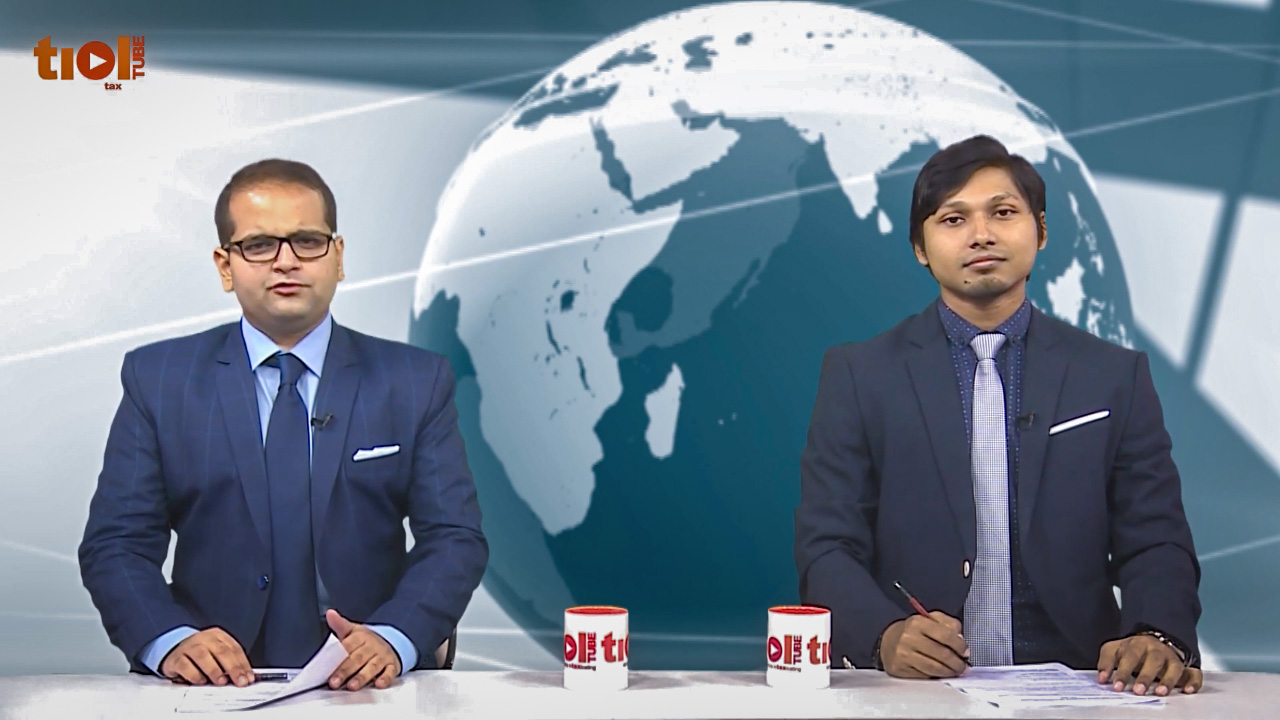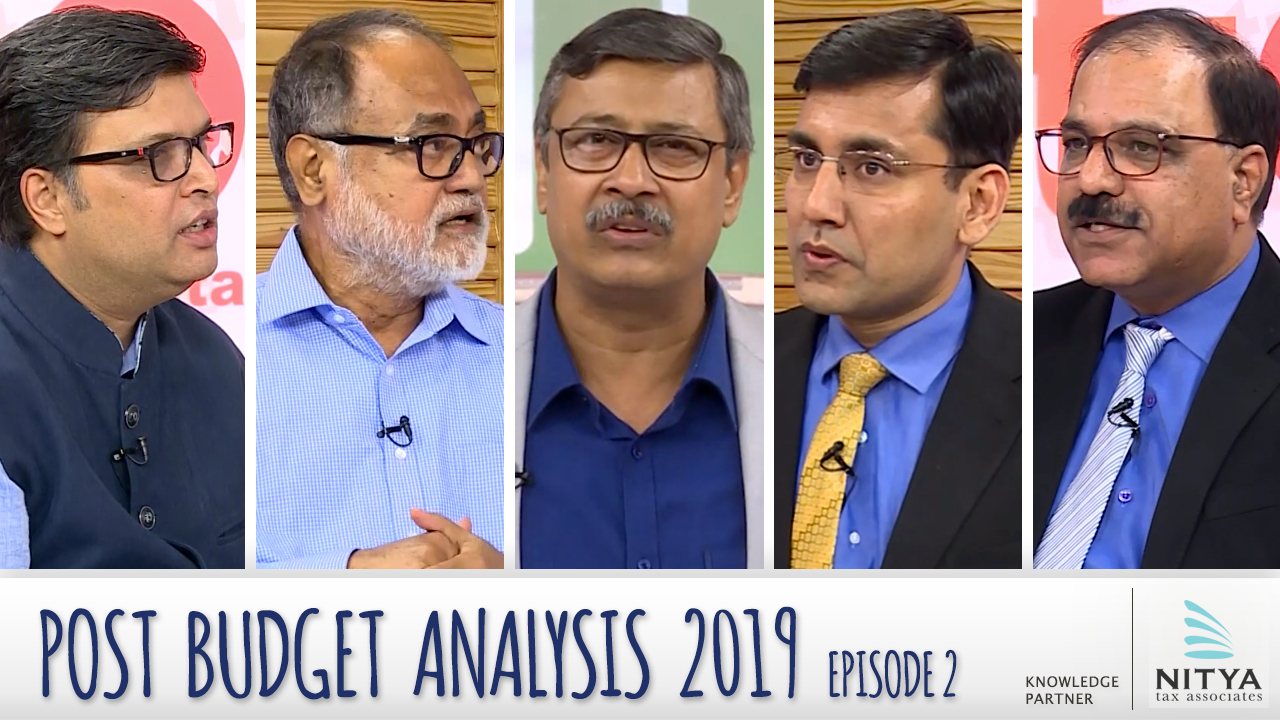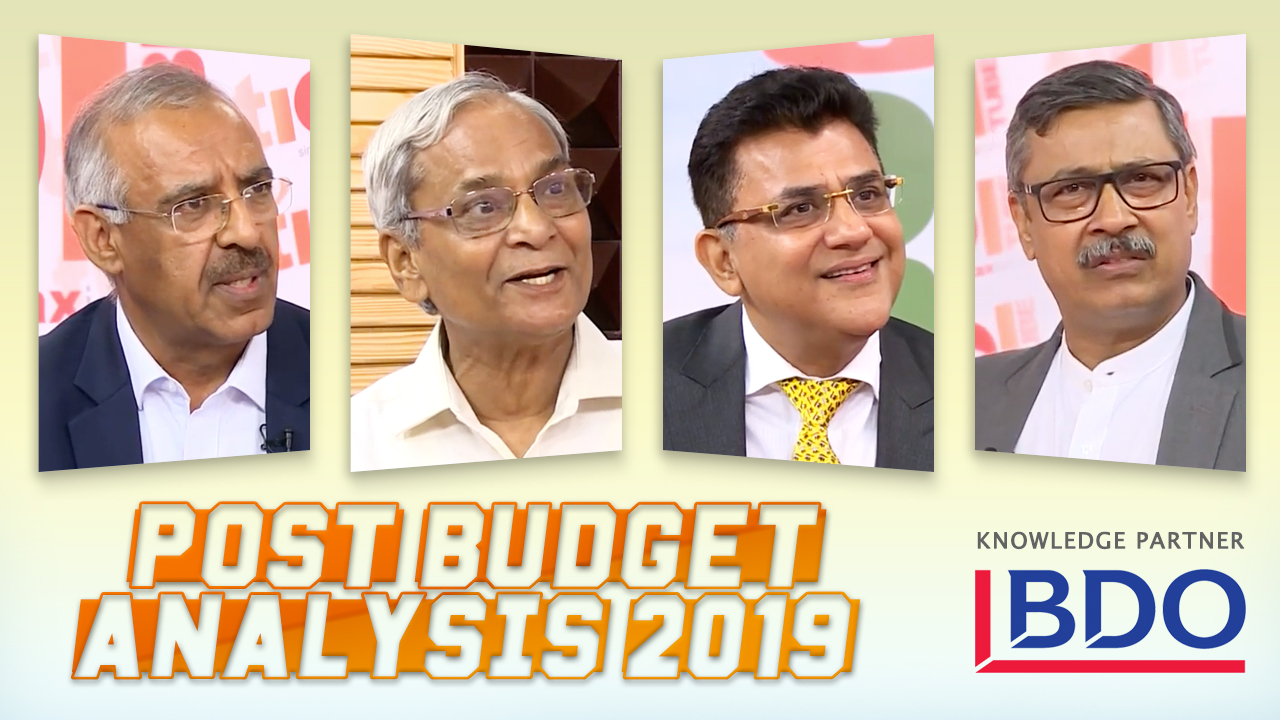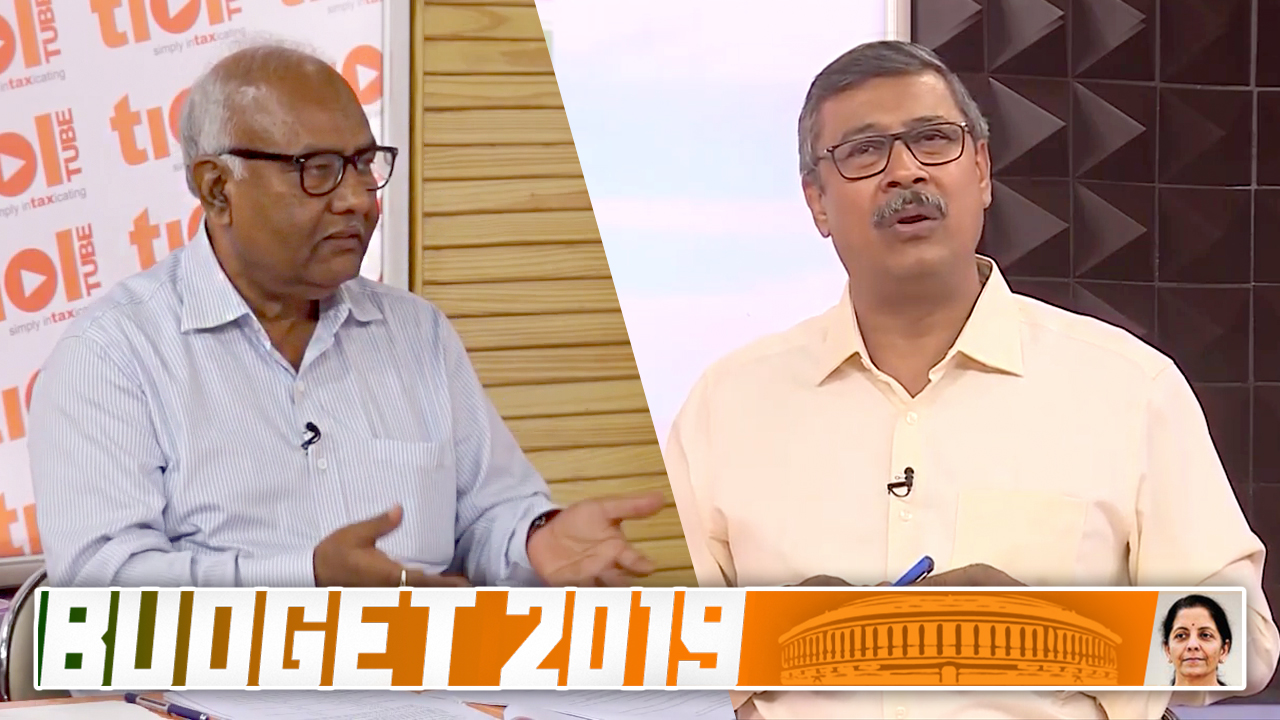|
SERVICE TAX
2019-TIOL-2130-CESTAT-DEL
Rane Khan Vs CCE & ST
ST - The issue in this appeal is whether service tax have rightly demanded from assessee under the category of "site formation and clearance service" - It is an admitted fact that the assessee has supplied machinery tractors and JCB to their principal for which they have been paid on hourly rate including operator cost, excluding fuel - Such services are squarely covered under the scope of "supply of tangible goods service" as defined under Section (65)(105) (zzzzj), it is found from the copy of work order issued by principal/ Enercon to assessee wherein for construction or for erection of WEG for wind power project, in the price category it is provided that the assessee shall paid at hourly rate for various machinery like JCB, tractor and tanker - Thus, evidently the service category involved is SOTG, and not site formation and clearance service as held by the court below - SOTG service came into effect from 16th March, 2008, that is after the period of dispute - The impugned order is set aside: CESTAT
- Appeal allowed : DELHI CESTAT
2019-TIOL-2129-CESTAT-MAD
S Balasubramani Vs CCE
ST - The department was of the view that assessee rendered Manpower Supply and Agency Services as they were engaged in supply of labourers to M/s. MSIPL - These labourers were employed in factory of said manufacturers to carry out activities of hot blasting and gas cutting during manufacture of steel castings - The department observed that the service rendered by assessee is classifiable under Man-power Recruitment or Supply Agency Services - Undisputedly, the activities carried out by assessee are in the nature of hot blasting, heat treatment and gas cutting - In SCN, it is alleged by department that these processes do not amount to manufacture and that only if the process undertaken by jobworker amounts to manufacture would the activity fall under description of job work - This allegation of department is without substance - There are several processes undertaken by job worker, which may not be in the nature of manufacturing activity - From the invoices it is seen that job work charges are paid on the basis of nature of work carried out - The payment is not based on man hours or as salary towards engagement of a person for doing work - The payment is made on piece rate basis depending upon the work done - The Tribunal in case of M/s. Indira Industrial Labour Welfare Association - 2018-TIOL-2889-CESTAT-MAD had analysed a similar issue and held that job work is done on piece rate, and the same cannot be considered as Man-power Recruitment or Supply Agency Services - The facts in the present case also establish that the activity does not attract the levy of service tax under Man-power Recruitment or Supply Agency Services - The demand cannot sustain: CESTAT
- Appeal allowed : CHENNAI CESTAT
CENTRAL EXCISE
2019-TIOL-2128-CESTAT-MAD
Jeevan Diesels And Electricals Ltd Vs CCE & ST
CX - The miscellaneous application is filed by assessee seeking directions from Tribunal to release the seized goods - The MD, Shri K.S. Jain has produced a letter issued by Department - On perusal of said letter, Tribunal do not find that department has denied the release of goods - Department has sought further time and to wait till the outcome of the review of Final order - Further, the Tribunal does not have any powers of execution of final orders passed by it - There is no express provision in statute which empowers the Tribunal to execute the Final order passed by it disposing an appeal - Rule 41 of CESTAT Procedural Rules, lays down that the Tribunal may make such orders or give directions as may be necessary or expedient to give effect or in relation to its' orders or to prevent abuse of its' process or to secure the ends of justice - The said provision cannot be extended to issue orders of execution - When the Act does not provide for execution of Final orders passed by Tribunal, the Rules cannot be stretched to pass directions to implement the order - The miscellaneous application is not maintainable: CESTAT
- Appeal dismissed : CHENNAI CESTAT
2019-TIOL-2127-CESTAT-DEL
Kamal Sponge Steel And Power Ltd Vs CCE & ST
CX - The assessee is manufacturer of excisable goods namely, MS ingots, MS TMT bar, Runners, Risers and Mis-Rolls - The demand of duty is on the basis of allegation of clandestine removal of excisable goods without payment of duty - Such allegation has been levelled against assessee primarily on the basis of shortage in stock of finished goods detected by officers, comparison of figures in computer print outs and loose slips recovered from the guest house with the figures in the statutory records maintained by assessee and alleged actual production calculated on the basis of electricity consumption - Method of physical verification has not been stated in the panchnama - The final product in the present case is accounted for in weight - Therefore, the method for verification of stock of such goods must be the physical weighment of goods - Any other method of ascertaining quantity of such goods will be estimation only - Verification of stock was by eye estimation only - More over there is no dispute to the fact stated by assessee in their reply, that the shortage in case of MS Ingots was 3.24 % and that of TMT bars was 1.4 % of the total production - Such difference in quantity is normal in case of eye estimation of the stock - Therefore, the allegation of clandestine removal on the basis of the so called shortage in stock of final products is un-sustainable - As regard demand on the basis of figures in loose slips, it is admitted that the loose slips were found in guest house and not in the factory premises - The author/scribe of the said loose slips is not identified - The loose slips are therefore unauthenticated and it is hard to place reliance on such unauthenticated piece of documents recovered from a place other than factory premises - More over, there is no corroborative evidence to suggest correctness of the figure recorded in the loose slips - Therefore, the demand of duty on the basis of figures in such unauthenticated and uncorroborated piece of evidence is unsustainable - The issue of calculation of average production on the basis of electricity consumption and demand of duty on the production figure arrived at on the basis of electricity consumption had been subject matter of litigation for a long period of time - The issue was decided by this Tribunal in the case of R.A. Castings Pvt. Ltd. - 2008-TIOL-2732-CESTAT-DEL - Once the allegation of suppression of production and clandestine removal of alleged unaccounted production is proved to be incorrect, the production calculated on the basis of such production figure must be treated as incorrect and wrong - Demand of duty on the basis of average production calculated as per consumption of electricity is unsustainable - There is no reliable evidence to corroborate alleged clandestine manufacture and clearance - There is no evidence to show procurement of excess raw material, actual removal of unaccounted finished goods, receipt of sale proceeds of such clandestinely removed goods, transportation of excess raw material or of unaccounted goods produced - Therefore, the allegation of clandestine removal of excisable goods is not proved in this case and hence the demand of duty is set aside - Since the allegation of clandestine removal is not proved and since the demand of duty stands set aside, Tribunal refrain from giving findings on the issue of limitation - The penalty imposed on assessee is set aside: CESTAT
- Appeal allowed : DELHI CESTAT
2019-TIOL-2126-CESTAT-AHM
JK Paper Ltd Vs CCE & ST
CX - The assessee is a manufacturer of writing and printing paper - During an audit, it was discovered that assessee has two channels of sale i.e. sale at factory gate and sale from depot - They had a cash discount policy where cash discount is given at the rate of two percent, if the bill amount is paid within 10days and discount is 1% if payment is made within 20 days - The case of department is that the cash discount which was not availed by buyers is part and partial of the transaction value and accordingly, excise duty demand was raised by issuing a SCN for the period Jan 2006-March 2007 - From the definition of 'transaction value', it is clear that the price only paid or payable for the goods sold shall be the transaction value - The definition also prescribed that not only the amount by the buyers at the time but any amounts that buyer is liable to pay either at the time of sale or thereafter even is part of the transaction - Therefore, even the discount amount is not payable at the time of sale of the goods but same is payable subsequently when the payment is not made within the prescribed time limit i.e., 4 days or 14 days as the case may be - The discount amount which is paid by buyer subsequent to the payment of Bill amount should also form part of assessable value - However, the Supreme Court in case of Purolator India Ltd. - 2015-TIOL-193-SC-CX dealing with the same issue taken a view that transaction value has to be written alongwith expression for delivery at the time or place of deliveries - Therefore, value of excisable goods even on the basis of transaction value is only to be taken i.e. at the time of clearance of goods from assesee's factory or depo - An expression "actually paid or payable for the goods when sold" means whatever is agreed to as price for the goods on the basis of value whether such price, has been paid in parts or has not been paid at all - Hence, cash discount which is not at or prior to clearance of goods being contained in agreement of sale between assessee and buyers must, therefore, be deducted from sale price in order to know the value of excisable goods at time - Hence, cash discount was deductible - Accordingly, following the ratio of Supreme Court Judgment in case of Purolater India Ltd. , the impugned order is set aside: CESTAT
- Appeal allowed : AHMEDABAD CESTAT
CUSTOMS
2019-TIOL-1598-HC-DEL-CUS
Pr.CC Vs SAP India Pvt Ltd
Cus - The issue at hand pertains to the jurisdiction of DRI officers to issue SCNs in Customs matters.
Held - The issue at hand is pending disposal before the Apex Court, in the appeal filed against the High Court's judgment in the case of Mangli Impex Vs Union of India - In two orders passed earlier, the court had remanded matters to the Tribunal for re-consideration - Hence the present matter is remanded to the Tribunal for fresh disposal without taking into consideration this court's decision in Mangli Impex Ltd. v. Union of India : HC
-Case remanded
:DELHI HIGH COURT
2019-TIOL-1597-HC-MUM-CUS
Reliance Industries Ltd Vs UoI
Cus - Petition challenged a notice of hearing dated 21.12.2018 issued by the Office of Commissioner of Customs (Import) seeking to adjudicate a SCN issued on 28 th March 2002 u/s 28 of the Customs Act, 1962 - basis of the challenge to the notice of hearing is the long delay in taking up adjudication proceedings - Petitioner submits that the High Court had by its order dated 12 th December 2017 in the case of Sanghvi Re-conditioners P Ltd. - 2017-TIOL-2618-HC-MUM-CUS allowed the petition by observing that long delay in taking up adjudication process causes serious prejudice to the parties.
Held: Counsel for the respondents very fairly state that the issue arising herein would stand concluded against the Revenue by the decision of this Court in M/s. Sanghvi Re-conditioners Pvt. Ltd. (supra) - Inasmuch as the petitioners herein were co-noticees along with M/s. Sanghvi Re-conditioners Pvt. Ltd. for alleged breach of Customs Act, 1962 in the Show Cause Notice dated 28th March, 2002 - Moreover, common notices for personal hearing of the Show Cause Notice dated 28th March, 2002 were issued after the gap of 16 years i.e. by Notice dated 21st December, 2018 - Therefore, it is an agreed position between the parties that the decision of this Court in Sanghvi Re-conditioners Pvt. Ltd. (supra) would equally apply to the facts of the present case - Revenue has not pointed out any distinction in facts, which would warrant a different view in this case from that taken in M/s. Sanghvi Re-conditioners Pvt. Ltd. (supra) - long delay in taking up the adjudication of a showcause notice (without sufficient cause), would be indicative of the Revenue having abandoned the showcause notice - moreover, delay in adjudication would cause prejudice to the noticee as the men in the knowledge of the facts may not be available or even if available, memories fail - Besides, papers and records which may be an answer to the challenges in the notice may not be traceable, thus, making it impossible to respond to the notice appropriately - petition is allowed and the show cause notice dated 28th March, 2002 to the extent it is issued to the petitioner is quashed and set aside - Petition allowed: High Court [para 2 to 5]
- Petition allowed
:
BOMBAY
HIGH COURT
2019-TIOL-2125-CESTAT-AHM
Jajoo Architectural Glass Pvt Ltd Vs CC
Cus - The assessee-company filed BoE for clearance of imported Extra Float Glass - Through the relevant Notfn, Anti Dumping Duty (ADD) was imposed on Float glass of thickness 2mm to 12mm (both inclusive) of clear as well as tinted variety (other than green glass), processed glass meant for decorative, industrial or automotive purposes falling under heading 7005 of the first schedule to the Customs Tariff Act, imported from China PR & Indonesia - While the assessee did contend that the glass imported by it would not attract ADD, it nevertheless paid such duty under protest - On appeal, the Commr.(A) observed that the Extra Clear Float Glass bore the characteristics of Clear Float Glass and that merely appending 'extra' in the former would not lead it to be treated as the latter - It is also not a case that the goods were specifically excluded for non-levy of ADD under the relevant Notfn - It was also held that the establishment of causal link between dumping and injury could best be done by the Designated Authority - Hence the present appeals were filed by the assessee against such O-i-A.
Held: As per the literature produced, the Extra Clear Glass is altogether a different variety of glass - The glass-making technique is different, as is the raw material used, in the sense that it contains less Iron - There is difference in the prices of both types of glasses - The assessee also produced a certificate issued by the Federation of Safety Glass, stating that both types of glass in issue here, are different from each other & that the Extra Clear Glass is not manufactured in India - In such a situation, there is no reason to hold that the import of such goods would cause any injury to the domestic industry - When goods are not manufactured in India, there is no reason to cause injury to the domestic industry - Hence such goods are eligible to be imported without payment of any ADD - Hence the O-i-A merits being set aside: CESTAT
- Assessee's appeal allowed : AHMEDABAD CESTAT |







